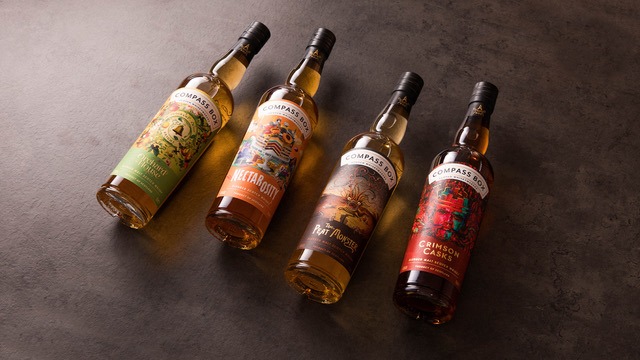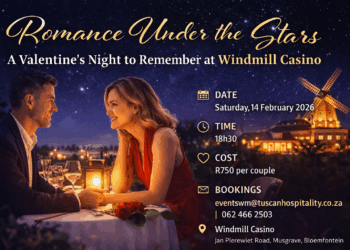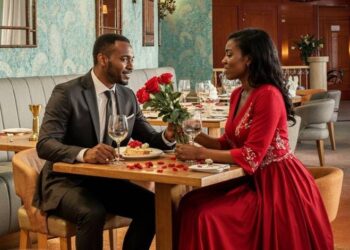In a quiet, elegant move that says as much about culture as it does about liquid, Compass Box — the maverick Scotch house famous for fearless blending and unusual transparency — has brought a new kind of whisky diplomacy to South Africa: small, invitation-only tastings, pairing dinners, jazz salons and curator-led masterclasses designed to teach, delight and reframe how local drinkers experience Scotch. The series, staged across Cape Town and Johannesburg, positions whisky not as an act of consumption but as a site of conversation — between flavour and food, music and mood, maker and drinker.
These gatherings were deliberately targeted at media, cultural tastemakers and collectors. They were not about big pours or loud branding; they were about slowing down and clarifying what’s in the glass — texture, provenance and narrative — and showing why Compass Box’s blends reward close listening. Guests moved through neat pours, minimalist cocktails and matched courses while brand hosts explained component whiskies, cask provenance and the choices that make each blend sing. That level of disclosure is part of Compass Box’s DNA: the house is unusually explicit about what goes into its bottles — a practice that has won both acclaim and a loyal following worldwide.
Why these salon-style activations matter
South Africa already boasts a passionate and growing whisky scene, but much of that enthusiasm still centres on headline brands and festival-style tastings. Compass Box’s approach is different — quiet, editorial and pedagogical. By pairing the house’s core range (Orchard House, Nectarosity, The Peat Monster, Crimson Casks and others) with live jazz, contemporary cuisine and curated conversation, the brand created frames in which subtle textural differences and compositional decisions could be tasted and discussed, not just nodded at. For a category where provenance, wood influence and blending philosophy are everything, that context can alter how people drink — and how they talk about whisky thereafter.
The activation programme in South Africa mirrors Compass Box’s global efforts to make whisky more transparent and approachable: the company publishes details on component whiskies and cask types, and runs guided “Brand Home Visits” in London for consumers to learn directly from its blending team. South African events adapted that model to local soil — trading scale for intimacy and spectacle for education.
What guests saw, tasted and took away
Attendees described evenings that mixed disciplined tasting methodology with sensory theatre. A typical itinerary moved from a focused tasting of the Core Collection to a multi-course pairing (small, well-matched dishes that clarified texture and finish), followed by a relaxed jazz set where a signature Compass Box blend was served beside a carefully constructed, spirit-forward cocktail. The conversations were as instructive as the pours: brand hosts walked guests through decisions about cereal-to-malt ratios, grain whisky’s role, how new oak or refill casks alter mouthfeel, and why blending — when done as craft rather than commodity — can create something greater than its parts.
Local press noted that the activations were not one-off PR stunts but part of a sustained engagement strategy: earlier activations in Cape Town included arts-forward partnering’s and multidisciplinary programming, and Johannesburg events have been co-created with cultural platforms to place whisky alongside contemporary African art and performance. Those collaborations signalled a conscious effort to place Scotch within local creative ecologies rather than simply import a European tasting template.
The brand behind the experience: craft, curiosity and candour
Compass Box’s story is essential to understanding why the brand’s South African programme landed with such credibility. Founded in 2000, Compass Box has long framed blending as an act of creative authorship: the house treats whisky making like a chef treats a recipe — selecting components for texture, aromatics and narrative — and is unusually open about the provenance of those components. That transparency has been central to the brand’s positioning and to its appeal among a new generation of whisky drinkers who prize both story and substance.
Critically, Compass Box’s activations in Cape Town and Johannesburg emphasized that whisky education can be soulful. By pairing drams with music and conversation, the brand demonstrated how context — the right food, the right lighting, the right question from a host — can reveal previously hidden elements in a glass. For many attendees, the evening reframed whisky from “a thing you drink” to “a thing you attend to.”
What comes next
Organisers framed the South African season as an opening chapter rather than a full stop. Compass Box’s global calendar includes guided tasting sessions at its Brand Home in Richmond and a continuous programme of limited activations; in South Africa the intention appears to be similar: establish deep, local relationships, build a cohort of informed ambassadors, and return with more curated programmes that respond to what was learned in the room. The brand’s commitment to exploring texture, transparency and narrative suggests future events will continue to pair whisky with culture — music, food and contemporary art — rather than with flash.
Why this matters for South African whisky culture
South Africa’s drinkers are discerning and culturally attuned. Bringing Compass Box’s method — rigorous blending storytelling paired with intimate, culturally literate programming — has the effect of raising the conversation. It nudges tastemakers away from checklist-drinking (age statements, rare bottles) toward tasting that values process and composition. That’s a subtle shift, but it matters: it cultivates a domestic community that can interrogate brown spirits thoughtfully and can support an ecosystem where education and craft are as prized as rarity.



































